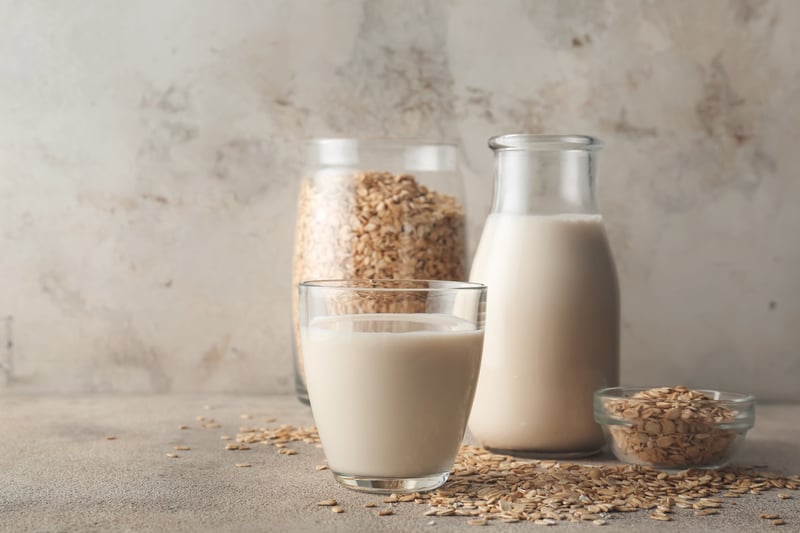Manténgase sano!

- Cara Murez
- Posted July 25, 2023
Milk Alternatives Don't Always Measure Up to Milk
If you're drinking soy, oat or almond milk, you may not be getting the same nutrients as you would with a glass of cow's milk.
A new analysis of more than 200 plant-based milk alternatives found that few contain the calcium, vitamin D and protein that can be found in cow's milk.
Only 12% of the alternative milk products studied had comparable or greater amounts of all three nutrients, the University of Minnesota study showed.
"Our results provide evidence that many plant-based milk alternatives are not nutritionally equivalent to cow's milk,"said Abigail Johnson, associate director of the University of Minnesota School of Public Health Nutrition Coordinating Center. "Based on these findings, consumers should look for plant-based milk alternative products that list calcium and vitamin D as ingredients. They may also want to consider adding other sources of calcium and vitamin D to their diets."
Both calcium and vitamin D were identified in the 2020-2025 Dietary Guidelines for Americans as nutrients of public health concern for underconsumption.
"We know from our dietary assessments for nutrition studies that consumers are choosing more plant-based milk alternatives,"Johnson said in a news release from the American Society for Nutrition.
The study aimed to increase the number of milk alternatives available in the Nutrition Coordinating Center's database of about 19,000 foods.
The researchers used nutrition and ingredient information from labels for 233 plant-based milk alternative products from 23 manufacturers.
They applied a nutrient calculation program to estimate full nutrient information and then compared the nutritional content of different products within a category to one another and to cow's milk.
Only 28 plant-based alternatives had similar or more calcium, vitamin D and protein as dairy milk, the study found.
Nearly two-thirds of the products studied were made from almonds, oats or soy.
About 170 of the plant-based milk alternatives were fortified with both calcium and vitamin D. That level of fortification tended to be similar to dairy milk.
This included 76% of the oat-based products, 69% of soy-based milks and 66% of almond-based alternatives, the investigators found.
The median protein content was 2 grams of protein per 240 milliliters of liquid, with a range from 0 to 12 grams. (Median means half had more protein, half less.)
In all, 16% of the milk alternatives studied had a protein level greater than or equal to the 8 grams per 240 milliliters found in cow's milk. Milks made from soybeans or peas were more likely to have higher protein, according to researchers.
"Our findings point to a need to ensure that consumers are aware that many plant-based milk alternative products in the marketplace today are not nutritionally equivalent to cow's milk,"Johnson said. "Product labeling requirements and dietary guidance to the public are among the approaches that may be helpful in alerting and educating consumers."
The Plant-Based Foods Association did not respond to a request for comment on the findings.
The researchers now plan to compare other nutrients between cow and plant-based milks, such as fiber.
Johnson presented the findings Monday at a meeting of the American Society for Nutrition, in Boston. Findings presented at medical meetings should be considered preliminary until published in a peer-reviewed journal.
More information
The U.S. National Institutes of Health has more on the nutrient calcium.
SOURCE: American Society for Nutrition, news release, July 24, 2023






